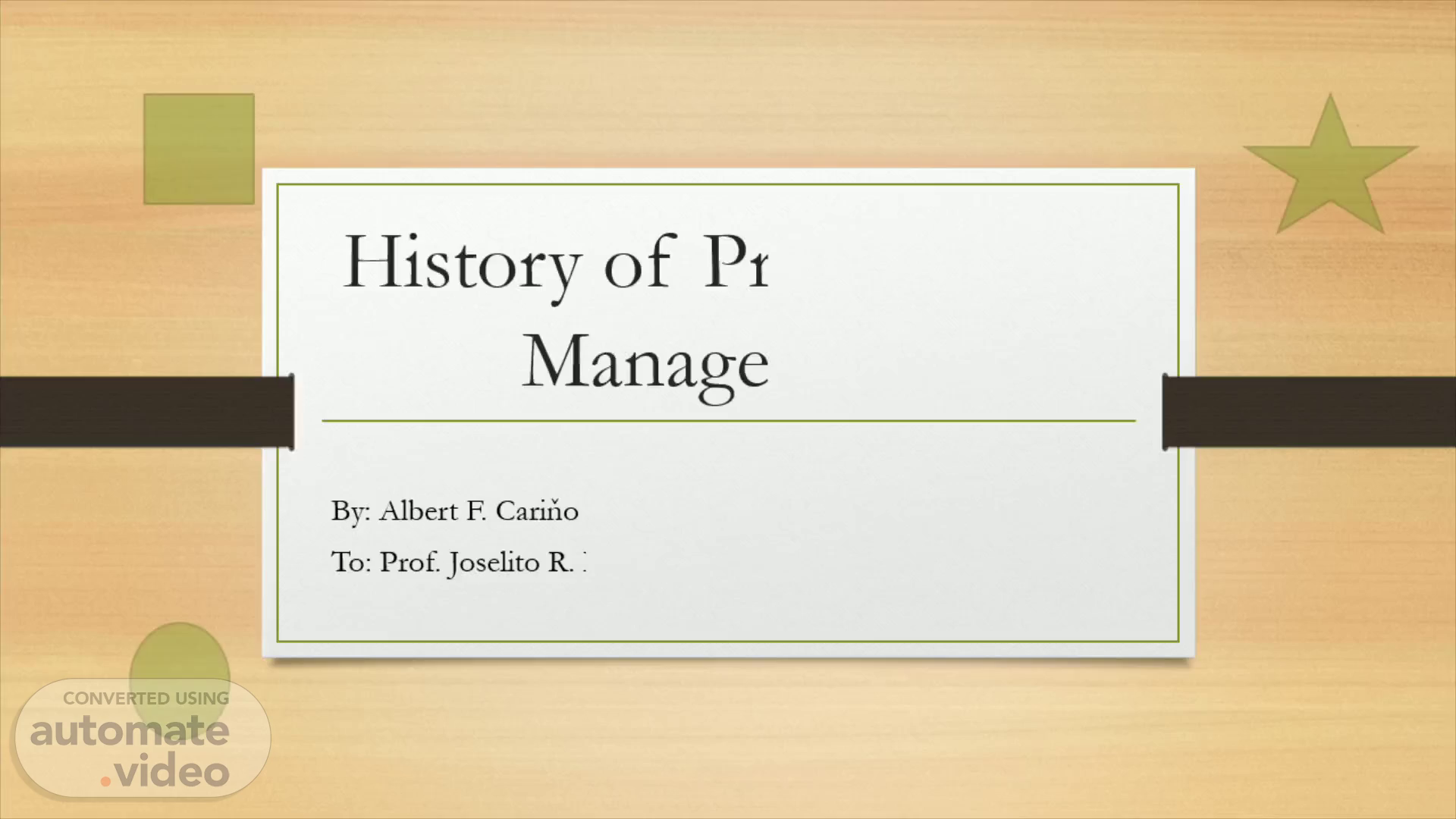
History of Principles of Management
Scene 1 (0s)
History of Principles of Management. By: Albert F. Cariňo To: Prof. Joselito R. Dela Cruz.
Scene 2 (10s)
Managers. We tend to think about managers based on their position in an organization. This tells us a bit about their role and the nature of their responsibilities. The following figure summarizes the historic and contemporary views of organizations with respect to managerial roles (Ghoshal & Barlett, 1999). In contrast to the traditional, hierarchical relationship among layers of management and managers and employees, in the contemporary view, top managers support and serve other managers and employees (through a process called empowerment), just as the organization ultimately exists to serve its customers and clients. Empowerment is the process of enabling or authorizing an individual to think, behave, take action, and control work and decision making in autonomous ways..
Scene 3 (41s)
The History. The concept of management has been around for thousands of years. According to Pindur, Rogers, and Kim (1995), elemental approaches to management go back at least 3000 years before the birth of Christ, a time in which records of business dealings were first recorded by Middle Eastern priests. Socrates, around 400 BC, stated that management was a competency distinctly separate from possessing technical skills and knowledge (Higgins, 1991)..
Scene 4 (1m 3s)
The Scientific Era – Measuring Human Capital. With the emergence of new technologies came demands for increased productivity and efficiency. The desire to understand how to best conduct business centered on the idea of work processes. That is, managers wanted to study how the work was performed and the impact on productivity. The idea was to optimize the way the work was done. One of the chief architects of measuring human output was Frederick Taylor. Taylor felt that increasing efficiency and reducing costs were the primary objectives of management. Taylor’s theories centered on a formula that calculated the number of units produced in a specific time frame (DiFranceso and Berman, 2000)..
Scene 5 (1m 32s)
The Modern Era. Koontz and O’Donnell (1955) Defined management as “the function of getting things done through others. One commanding figure stood above all others and is considered the father of modern management (Edersheim, (2007). Peter Drucker. Drucker An author, educator, and management consultant is widely credited with developing the concept of Managing By Objective or MBO (Wren & Bedeian, 2009). Management by Objective is the process of defining specific objectives necessary to achieve the organization’s goals. The beauty of the MBO concept was that it provided employees a clear view of their organization’s objectives and defined their individual responsibilities..
Scene 6 (1m 59s)
The MBO Process. Planning Setting objectives Setting control points Arranging employees in setting objectives Monitoring Continuous communication with emølovees Feedback Performance Em plovee effectiveness: Productivity • Satisfaction.
Scene 7 (2m 8s)
Professor Henry Mintzberg in the early 1970s (Mintzberg, 1973).
Scene 8 (2m 27s)
Bible Verse Ephesians 6:5-9. Bible Verse Ephesians 6:5-9.